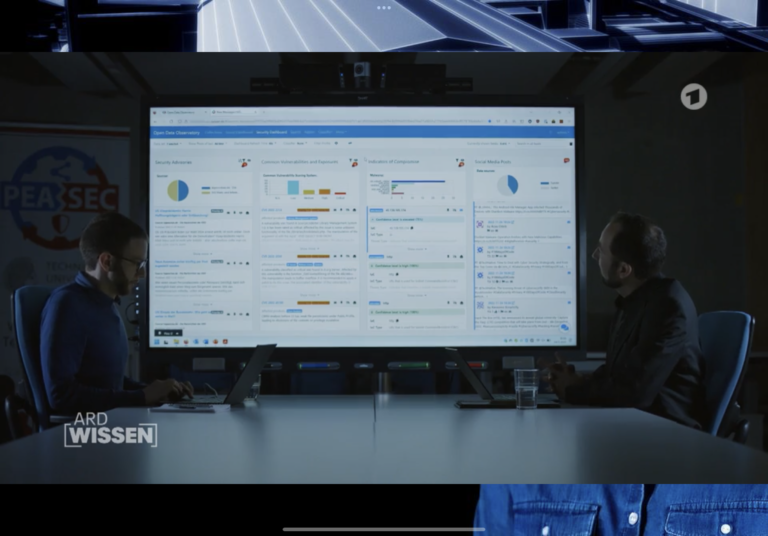Cybersecurity Research on TV
In the ARD Wissen documentary “Deutschland im Ernstfall - Wie schützen wir unsere Infrastruktur?”, emergenCITY PI Christian Reuter and collaborator Marc-André Kaufhold inform about their research
In the ARD Wissen documentary “Deutschland im Ernstfall - Wie schützen wir unsere Infrastruktur?”, emergenCITY PI Christian Reuter and collaborator Marc-André Kaufhold inform about their research

Critical infrastructures, such as power grids, cables, rails, roads, are essential for our everyday life. Therefore, the momentous possibility that these infrastructures fail, are destroyed in parts or sabotaged, becomes more and more focus of a public interest. So in the first episode of the new ARD documentary series “ARD Wissen”, which takes a close look at our complex living environment, presenter Lena Ganschow tackles the question: How stable is our critical infrastructure?
With the help of various experts, the 45-minute documentary, explores different aspects of this question. Is it possible to shut down communication in the long term by destroying fiber optic cables? Why are bridges and tunnels bottlenecks in traffic? How can threats to these infrastructures be identified, resilience be implemented and awareness of the threat posed by cyberattacks, for example, be created?
Christian Reuter and Marc-André Kaufhold from the Chair of Science and Technology for Peace and Security (PEASEC) at TU Darmstadt and collaborators at emergenCITY present in the documentary their research in the context of the BMBF project CYWARN and the National Research Center for Applied Cyber Security ATHENE. It addresses automated collection of public data sources and data evaluation with credibility analysis and information prioritization. This data will then be used to automatically create a cyber situational picture, which will be applied, for example, in government emergency response teams, but also potentially for warning apps, such as hessenWARN.
The whole documentary is available online plus a summary for reading. Further information on cyber security and the CYWARN project was also published by tagesschau.de in an article here.